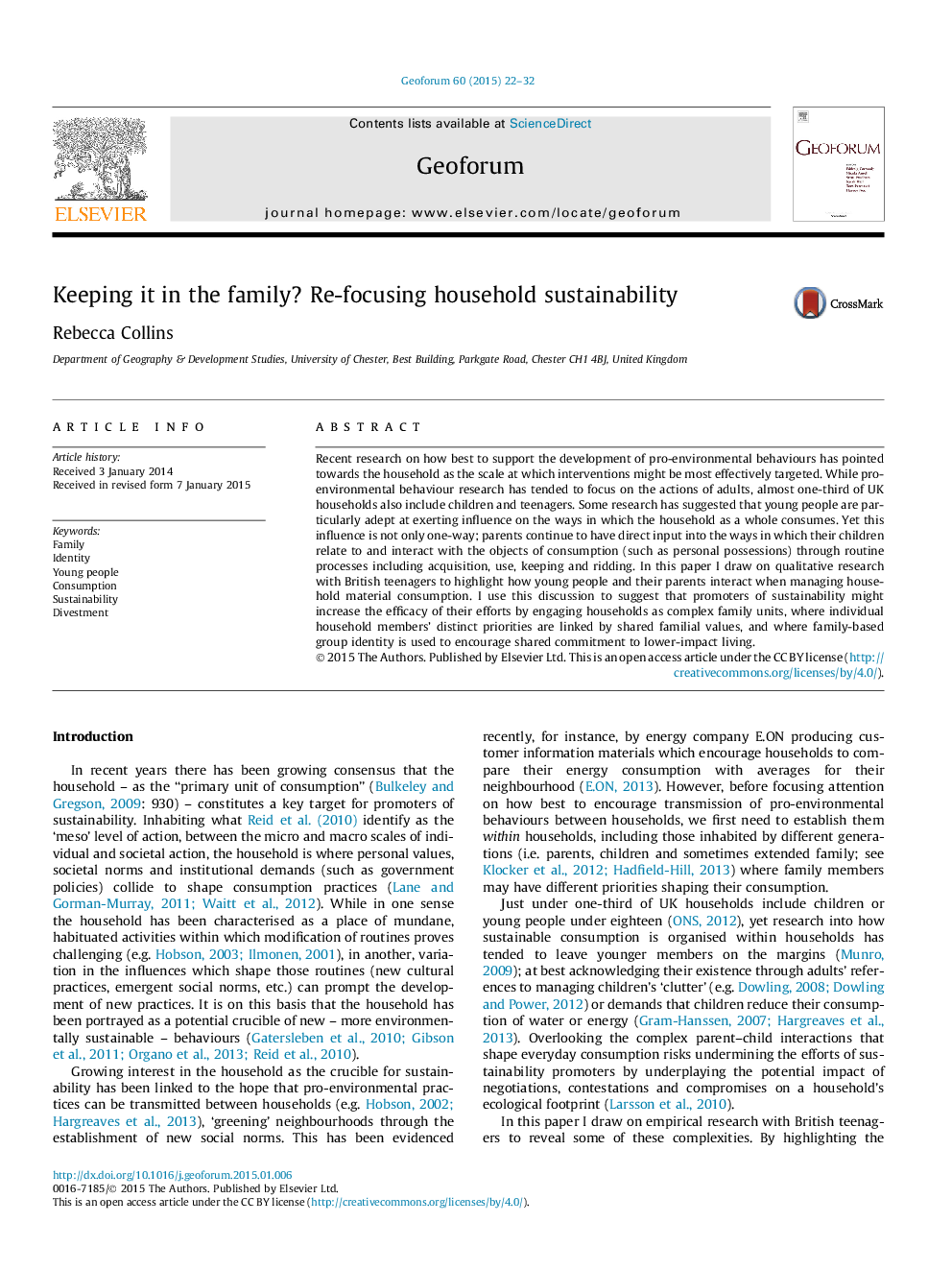| Article ID | Journal | Published Year | Pages | File Type |
|---|---|---|---|---|
| 5073718 | Geoforum | 2015 | 11 Pages |
Abstract
Recent research on how best to support the development of pro-environmental behaviours has pointed towards the household as the scale at which interventions might be most effectively targeted. While pro-environmental behaviour research has tended to focus on the actions of adults, almost one-third of UK households also include children and teenagers. Some research has suggested that young people are particularly adept at exerting influence on the ways in which the household as a whole consumes. Yet this influence is not only one-way; parents continue to have direct input into the ways in which their children relate to and interact with the objects of consumption (such as personal possessions) through routine processes including acquisition, use, keeping and ridding. In this paper I draw on qualitative research with British teenagers to highlight how young people and their parents interact when managing household material consumption. I use this discussion to suggest that promoters of sustainability might increase the efficacy of their efforts by engaging households as complex family units, where individual household members' distinct priorities are linked by shared familial values, and where family-based group identity is used to encourage shared commitment to lower-impact living.
Related Topics
Social Sciences and Humanities
Economics, Econometrics and Finance
Economics and Econometrics
Authors
Rebecca Collins,
